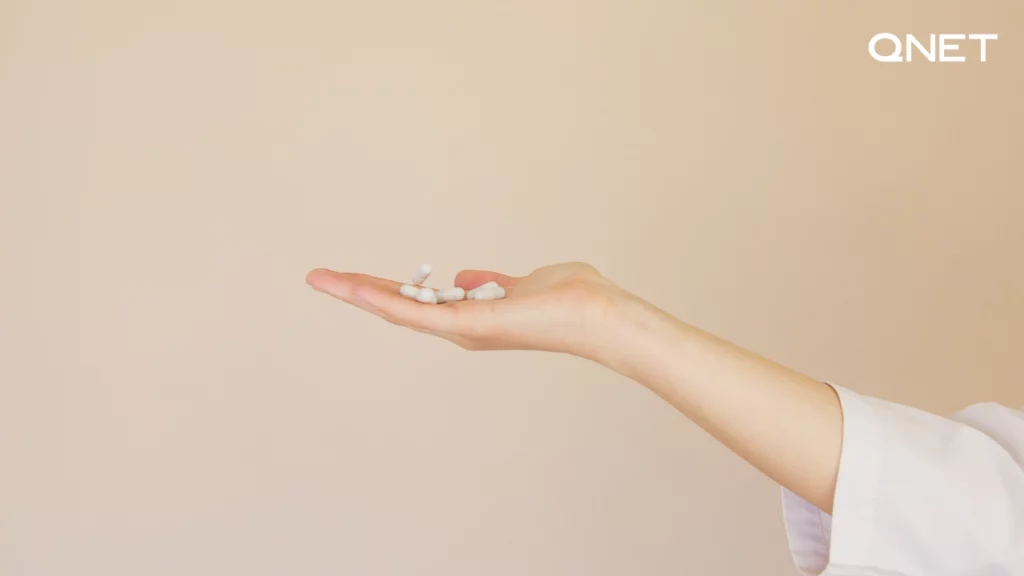Table of Contents
Are you catching a common cold often? Do you feel tired most of the time? Do you feel listless and mopey? If you answered yes to any of the above questions, you may be suffering from a Vitamin D deficiency. But what is Vitamin D and why is it so important for our overall health?
Vitamin D is a crucial fat-soluble vitamin that plays a vital role in various essential bodily processes. It’s responsible for regulating the absorption of calcium and phosphorus, which is essential for maintaining healthy bones and teeth. Additionally, it serves several critical functions such as strengthening the immune system, reducing inflammation, promoting cellular growth and supporting neuromuscular functions.
Beyond these fundamental roles, Vitamin D also has a significant impact on preventing and managing various health conditions, including Type 1 and Type 2 diabetes, hypertension, glucose intolerance, multiple sclerosis, and autoimmune diseases.
The body naturally produces Vitamin D when exposed to ultraviolet rays from sunlight. It is, therefore, also known as the Sunshine Vitamin. However, if you don’t get enough sunlight or don’t consume foods rich in Vitamin D, you are at a higher risk of developing a deficiency. Recent research has suggested that a substantial portion of both adults and children worldwide, up to 50%, may be deficient in vitamin D.
Read More: Vitamin D 101 — A Detailed Beginner’s Guide

What Are The Signs Of Vitamin D Deficiency?
Vitamin D deficiency can manifest with a variety of signs and symptoms, which can vary in severity. Some common signs and symptoms of Vitamin D deficiency include:
- Fatigue – Feeling unusually tired and lacking in energy is a common symptom of Vitamin D deficiency. Low levels could lead to fat accumulation and even slow down your metabolism.
- Bone and muscle pain – Vitamin D is essential for maintaining healthy bones and muscles, as it helps the body absorb calcium. Deficiency can lead to bone pain or osteomalacia, osteoarthritis or rheumatoid arthritis, and muscle weakness in adults. It has been established that up to 60% of people with fibromyalgia have Vitamin D deficiency. In children, Vitamin D deficiency can cause rickets, a condition characterised by bone deformities and stunted growth. Vitamin D is known to reduce the risk of multiple sclerosis by up to 54%.
- Frequent infections – A weakened immune system can be the result of Vitamin D deficiency, making you more susceptible to infections. Vitamin D supports the proper functioning of the T cells that help your body fight foreign organisms.
- Mood swings – Some research suggests a link between low Vitamin D levels and an increased risk of depression, irritability and mood swings. Some people with vitamin D deficiency report sleep disturbances. Vitamin D plays an important role in serotonin and melatonin regulation, which is crucial for the regulation of mood and sleep. The elderly are 11 times more likely to have depression due to low Vitamin D levels.
- Hair loss and excessive sweating – In some cases, hair loss can be associated with Vitamin D deficiency. Low Vitamin D can also cause excessive sweating on the head. The vitamin is known to regulate the body’s fluid balance and body temperature.
Increase In Vitamin D Deficiency Post-COVID?
The COVID-19 pandemic not only reshaped our daily lives, but has also brought to light a range of health concerns, some of which extended beyond the immediate threat of the virus itself. Among these concerns is the issue of Vitamin D deficiency, which, even after the pandemic, continues to be a significant health concern.
Experts suggest that pandemic-related factors and lifestyle changes have contributed to this deficiency. Here are a few reasons why this might be the case:
- Lockdowns and reduced sun exposure – During lockdowns, many people spent more time indoors, which led to reduced exposure to sunlight. Sunlight is a natural source of vitamin D. The reduced exposure to sunlight resulted in a decrease in Vitamin D levels.
- Dietary changes – It has been reported that some people’s eating habits changed during the pandemic, which included a decrease in consumption of natural foods rich in Vitamin D, such as fatty fish, fortified dairy products and/or eggs.
- Stress and mental health – The pandemic has been a source of stress and anxiety for many people. Chronic stress can have negative effects on the body, potentially impacting nutrient absorption and utilisation, including Vitamin D.
All this goes on to establish the important role that Vitamin D plays in maintaining your overall health.
Read More: Post-Covid, vitamin D deficiency affecting many: Doctors
How Can You Get Vitamin D Into Your System Naturally?
You can take the following simple steps to improve the Vitamin D levels in your body.

- Get adequate sunlight – The most natural means of acquiring Vitamin D is through the body’s ability to synthesise it when exposed to sunlight, setting it apart from other vitamins. Medical experts typically advise getting at least 10 to 15 minutes of sunlight exposure at least 2 or 3 times per week. To safeguard the skin from potential sun damage, it is advisable to seek this exposure before 10 a.m. when sunlight is less intense. It’s important to keep in mind that Vitamin D has a relatively short half-life of only two weeks, implying that reserves can diminish, especially during the winter months.

- Eat right and exercise – Incorporate Vitamin D-rich foods, such as salmon, orange juice, egg yolk, cod liver oil, goat’s milk and shiitake mushrooms, in your diet. To optimise the absorption of this fat-soluble vitamin, it’s advisable to include healthy fats in your diet as well. Incorporating sources of healthy fats like nuts, seeds (such as sunflower and flaxseed), seed oils, pure ghee, milk, and olives can enhance vitamin D absorption. Regular exercise, even if it is indoors, also helps to some extent.

- Vitamin D supplements – The recommended daily intake of Vitamin D varies by age group, with infants needing around 10 micrograms (400 IU), children and adults requiring 15 micrograms (600 IU), and individuals aged 70 and above benefiting from an increased intake of 20 micrograms (800 IU). One option to supplement your Vitamin D intake is by taking Nutriplus BoneHealth, which provides 5 micrograms of vitamin D per daily dose.
Disclaimer to this article and the information provided: It is essential to consult with a healthcare provider if you suspect to have a Vitamin D deficiency or have concerns about how it is affecting your health, as they can provide personalised guidance and recommendations based on your individual circumstances.








